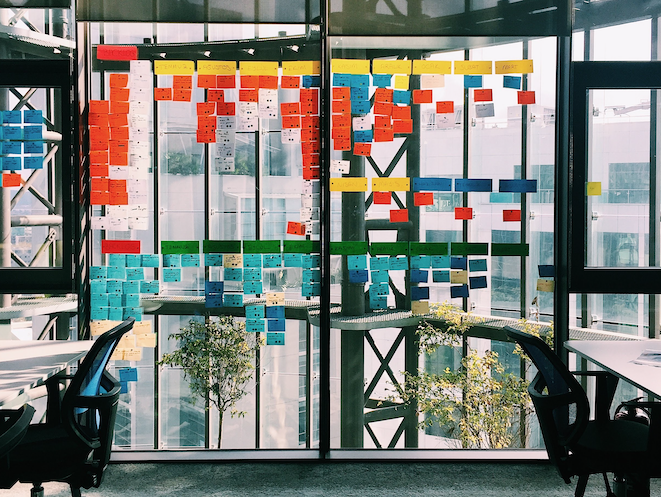
The Year Ahead
January 30, 2020

We have a big year planned for 2020. From advocacy and research, to panel participation and other high-level engagements, check out some of the projects we’ll be working on this year:
Advocacy
In 2019, we began advocacy work with local partners in Uganda, Kenya and Colombia thanks to generous funding from the Government of Norway.
In Uganda, we are working with the Advocates Coalition for Development and Environment (ACODE), an independent public policy research and advocacy think tank working in the East and Southern Africa sub-regions. Our organizations are working together on natural resource and financial transparency issues and in 2020 will jointly produce a national risk assessment of the gold sector in Uganda.
We are also working with Transparency International Kenya (TI-Kenya) on natural resource and financial transparency issues and coordinating work together on the Kenyan government’s money laundering national risk assessment. We’ve also partnered with the Institute of Economic Affairs (IEA-Kenya), a think-tank conducting research and public education on key economic and public affairs issues, to work on issues of financial transparency.
Additionally, in Colombia, we have partnered with the Centro de Estudios del Trabajo (Cedetrabajo), a non-profit organization founded in 1979 that brings together experts from the fields of labor, democracy and production to address core social issues in Colombia. In 2019, we published Illicit Financial Flows & Colombia with contributions from Cedetrabajo and the Economist Intelligence Unit, and co-launched the Spanish language version of the same report later that year in Bogotá with Cedetrabajo.
In addition, GFI continues its work as a member of the Financial Accountability and Corporate Transparency (FACT) Coalition and the Financial Transparency Coalition (FTC). GFI is also a new member of the SDG 16 Data Initiative group, a consortium of organizations pooling their research to assess global progress on achieving UN Sustainable Development Goal 16.
GFI also founded a new group in December 2019, the Women in Transparency (WIT) Network, a professional networking and policy amplification group based in Washington, D.C. for women working in the transparency field. We look forward to continuing these rich collaborations in 2020.
Read more on our advocacy efforts here.
Research
2020 will also be a big year for GFI research, with a wealth of new work to publish.
First, our annual update examining trade-related illicit financial flows between developing and advanced economies will be released within the next few weeks. We have refined our methodology, transitioning to a ‘value gap’ analysis approach and taking the step of examining trade misinvoicing in South-South trade for the first time.
We are also planning to release a report examining the outsized role of Chinese transnational criminal networks in transnational crime and their contributions to illicit financial flows.
Finally, we will be exploring sector-specific trade analysis in several reports. We have an upcoming report examining trade misinvoicing in the Colombian timber trade, as well as the gold sector assessments we will produce with our partners in Colombia and Uganda.
Other research topics this year include an analysis of corporate formation rules in Latin America and the role of cryptocurrency in the real estate sector of G6 countries.
Working with Multilaterals and Exploring Blockchain Technology
GFI will also continue engaging with multilateral institutions in 2020. In particular, we will be working with a host of multilaterals to explore how blockchain technology can be used to curtail corruption and fraud in the trade sector. Technology offers exciting new opportunities in the fight against corruption, but it must also be implemented with care and consideration. We are excited to weigh in and explore opportunities to leverage blockchain technology in trade.
Updates to GFTrade
Additionally, we have made updates to our GFTrade tool, adding 12 new countries to our dataset. The program now includes up-to-date trade data from 43 countries, covering over 70 percent of global trade. GFTrade, GFI’s cloud-based risk assessment database, can help analysts and officials detect trade misinvoicing as it is occurring in real-time. It is an invaluable tool for customs departments, banks, financial intelligence units and government officials working on illicit trade- and finance-related issues.
Panel Participation
Next week, GFI President & CEO Tom Cardamone will speak as part on a panel on “Illicit trade and illicit financial flows” at the Illicit Trade Forum hosted by UNCTAD and TRACIT in Geneva, Switzerland.
In March, Channing Mavrellis, Director of GFI’s Illicit Trade Program, will provide keynote remarks on the evolution of payments fraud at the Merchant Acquirers Committee 2020 Level Up conference, followed by another keynote on countering illicit financial flows at the Port of the Future Conference at the University of Houston.
Additionally, GFI Policy Director Lakshmi Kumar will present at the OECD Global Anti-Corruption & Integrity Forum in March on the dangers of exploiting sovereign wealth funds for illicit purposes.
GFI is also looking forward to participating in “Boiling Point to Turning Point: The 8th Financial Transparency Conference” in Bangkok, Thailand in April.
The Year Ahead
In sum, 2020 will be a year of advocacy, research, exploration and collaboration for GFI. At our heart, we are a global development organization, focused on helping developing countries curb revenue losses to illicit financial flows, mobilize more domestic resources and in turn achieve the 2030 UN Sustainable Development Goals. We are excited to continue working with our partners, old and new, in 2020 and look forward to sharing more of our rigorous research, connective advocacy and unparalleled advisory services in this new year.
